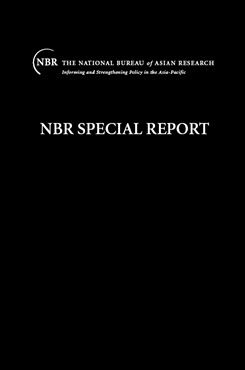NBR Special Report no. 6
China and WTO Compliance
Postal and Express Delivery Services
World Trade Organization (WTO) rules governing foreign market access for courier and distribution services pose serious compliance problems for China (the People’s Republic of China—PRC). Soon after its accession, China issued two regulations for express delivery services that contradicted its WTO horizontal commitments. The United States led a sustained, ultimately successful effort to convince Beijing to revise these measures, but draft amendments circulated in late 2003 by the State Council of the PRC raise new and significant compliance concerns. For its part, the international express delivery industry believes that China’s postal monopoly, China Post, is attempting to expand its control over express commerce and create an internal regulatory body.
World Trade Organization (WTO) rules governing foreign market access for courier and distribution services pose serious compliance problems for China (the People’s Republic of China —PRC). These services, defined and regulated by international rules, fall under the purview of the General Agreement on Trade in Services (GATS), which allows members significant flexibility in defining the scope of their commitments. China’s uneven compliance performance to date continues to cause concern among foreign industry and governments. Soon after its accession, China issued two regulations for express delivery services that contradicted its WTO horizontal commitments. The United States led a sustained, ultimately successful effort to convince Beijing to revise these measures, but draft amendments circulated in late 2003 by the State Council of the PRC raise new and significant compliance concerns. For its part, the international express delivery industry believes that China’s postal monopoly, China Post, is attempting to expand its control over express commerce and create an internal regulatory body.
This paper does not advocate either the Chinese or the U.S. position, but seeks to explore existing international rules and commitments, with the expectation that the confusing relationship between the international express delivery industry, the government of the People’s Republic of China, and the international trade system will become more “transparent” in the future.


